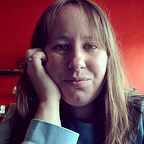Will Social Distancing Actually Bring Us Closer?
Right now we are talking a lot about social distancing, but as we invite and are invited into our Zoom/Skype/Facetime/etc. calls, perhaps we are inadvertently disclosing more about ourselves than we ever have in the office or in public spaces. In doing so, boundaries are being disrupted, and people will know more about us than we might have intended — even with a virtual background. When people show up on the screen unshowered or in clothes you might not see them in at the office or when they spend part of the meeting taking care of a child or holding a cat, these are social actions that define their now-public image.
Similar to the famous Shakespeare quote “All the world’s a stage, and we are players in it,” the sociologist Erving Goffman created a theory that expanded that idea in his 1956 book, The Presentation of Self in Everyday Life, and thus was born his sociological theory of dramaturgy. The short idea of dramaturgy is that we engage in social actions in the presence of others in order to improve or define our public self-image. And that theory is one explanation for why we care about what we wear or how our hair is cut.
When we build relationships, we also engage in something called self-disclosure. When you want to get closer to a friend, you end up sharing more about your personal life, and then you feel closer. You wouldn’t necessarily share the same information with your boss, because that disclosure might be crossing a boundary. We all do this. We make decisions about what we want people know about us, and depending on the relationship, we choose to disclose or withhold personal information.
Choices like this are driven by the tension created between wanting to disclose and wanting to withhold both verbally and with social interaction. This sort of tension is something researchers call dialectical tension, and it functions like a rubber band. The two truths are intrinsically connected to each other, and as we disclose more, we automatically withhold less and vice versa.
In most of life, we have some choice about both self-disclosure and the way that we engage in dramaturgy, but during this whole social distancing experiment we are living through our forced-online lives are contorting the boundaries that we usually establish to preserve some of our personal disclosures.
I was recently on a call where I spent time studying a wall hanging behind someone because I knew it would tell me more about who she was, and in knowing her better, I would be able to interact more relationally with her. Whether or not we actually feel closer to our coworkers or meet-ups groups or our kid’s teachers or any of the people we engage with online, we know more about each other now, and we are able to make different decisions about who we perceive them to be and how we should engage with them.
This is a moment when distance is the word of most concern to everyone because we are physically apart, but even that is a dialectical tension, because in our performance of distance, we are breaking down boundaries. We are invited into spaces we might have never seen and inviting others into ours. We are given insight into lives, and at the same time, we are sharing more about who we are and the people and pets we live with.
And I wonder, will we actually be closer after being apart? Will knowing more about each other’s homes and the up-close-and-personal experiences of weeks of self-isolation reveal that we have disclosed more than we meant to? Is the stage actually much smaller than we ever imagined, and are our lives more alike than we ever dared to dream? Maybe the screens all over our living rooms and offices and sometimes unfortunately our bathrooms will show us that we are all people trying to maintain our positive self-image while we also try to just keep living what turns out to be a very human life.
